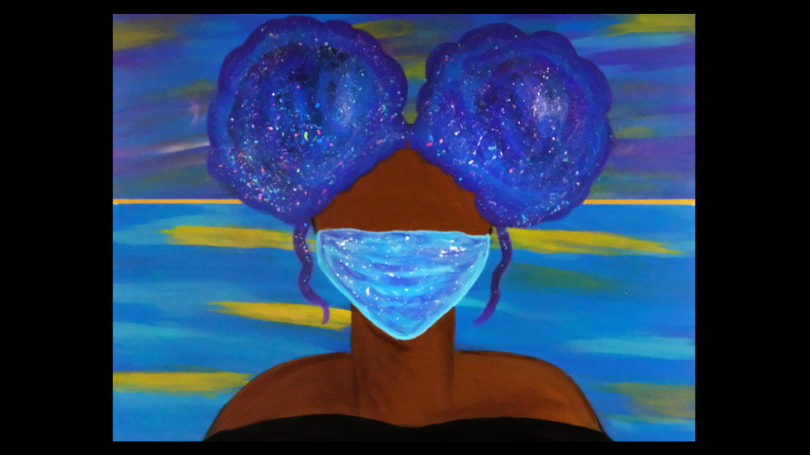
- Undergraduate
- Graduate
- Performance
- Foreign Study
- News & Events
- People
Back to Top Nav
Back to Top Nav
Back to Top Nav
Back to Top Nav
Back to Top Nav
Back to Top Nav
Music professor Allie Martin led the creation of the newly launched "Black Covid Care" website to show how Black people have cared for each other and kept each other well throughout the pandemic and long before.
When music professor Allie Martin considered how the Black community was portrayed during the COVID-19 pandemic, she was struck by the media's focus on racism.
The director of the newly launched Black Sound Lab, a research environment housed at Dartmouth's cluster for Digital Humanities and Social Engagement, Martin was exploring how she might create a project that "listened" to Covid data in some way.
"Through conversations with various colleagues and community members, including Jacqueline Wernimont (chair of the Digital Humanities and Social Engagement cluster), I realized that I did not want to sonify medical racism, and the ways in which Black people were experiencing Covid through limited vaccine availability and increased comorbidities and death rates," Martin says. "Rather, I wanted to hear how Black people were caring for each other and keeping each other well throughout the pandemic and beyond."
The resulting and newly launched "Black Covid Care," a digital project Martin created with designers, website developers, visual artists, and musicians, celebrates the resilience of the Black community during the pandemic and long before.
The team behind "Black Covid Care" includes colleagues of Martin's at Dartmouth such as Nikki Stevens, a research associate in the Women's, Gender, and Sexuality Studies Program, and Richel Cuyler, the cultural heritage technical developer at the Hood Museum of Art, as well as colleagues at the African-American Digital and Experimental Humanities initiatives at the University of Maryland, where Martin is completing a residency during the 2022-23 academic year. Additionally, the Hopkins Center for the Arts awarded the Black Sound Lab with an Arts Integration grant in 2021 that supported the project.
The interactive website features a sweeping image of outer space, where participants can click on individual stars to hear a soundscape affiliated with one of six themes—arts, education, foodways, health, protest, religion—while reading about a specific community organization that supported the Black community during the pandemic.
Participants can also form "constellations" between two or three stars to trigger a story of care from before the pandemic, with audio that combines the soundscapes of the individual stars. For example, building a constellation between a story about food drives during the pandemic and another about the 2020 protests against systemic racism might trigger a constellation about the Detroit Black Community Food Security Network, which was founded in 2006 to combat food insecurity in the predominantly Black communities of Detroit.
"Using outer space came from the idea that Black care is so vast and infinite that space was the only way to represent the scale of what Black people have been able to accomplish under horrible circumstances," Martin says.
From the fonts on the homepage, designed by Tré Seals and inspired by Black leaders and thinkers to the original paintings by Leigh Ashley affiliated with each theme, and original soundscapes by the band Boomscat, the site showcases Black creativity alongside acts of heroism and care by numerous community organizations.
"From vaccine and testing pop up sites in Oakland, to community organizations feeding their communities in Greensboro, N.C., Black people have come together consistently to keep themselves well during a tumultuous time in the world," Martin says. "What we want to show here is that while these acts of care are indeed extraordinary, they are not new. Black people have been caring for each other in spectacular ways for centuries."